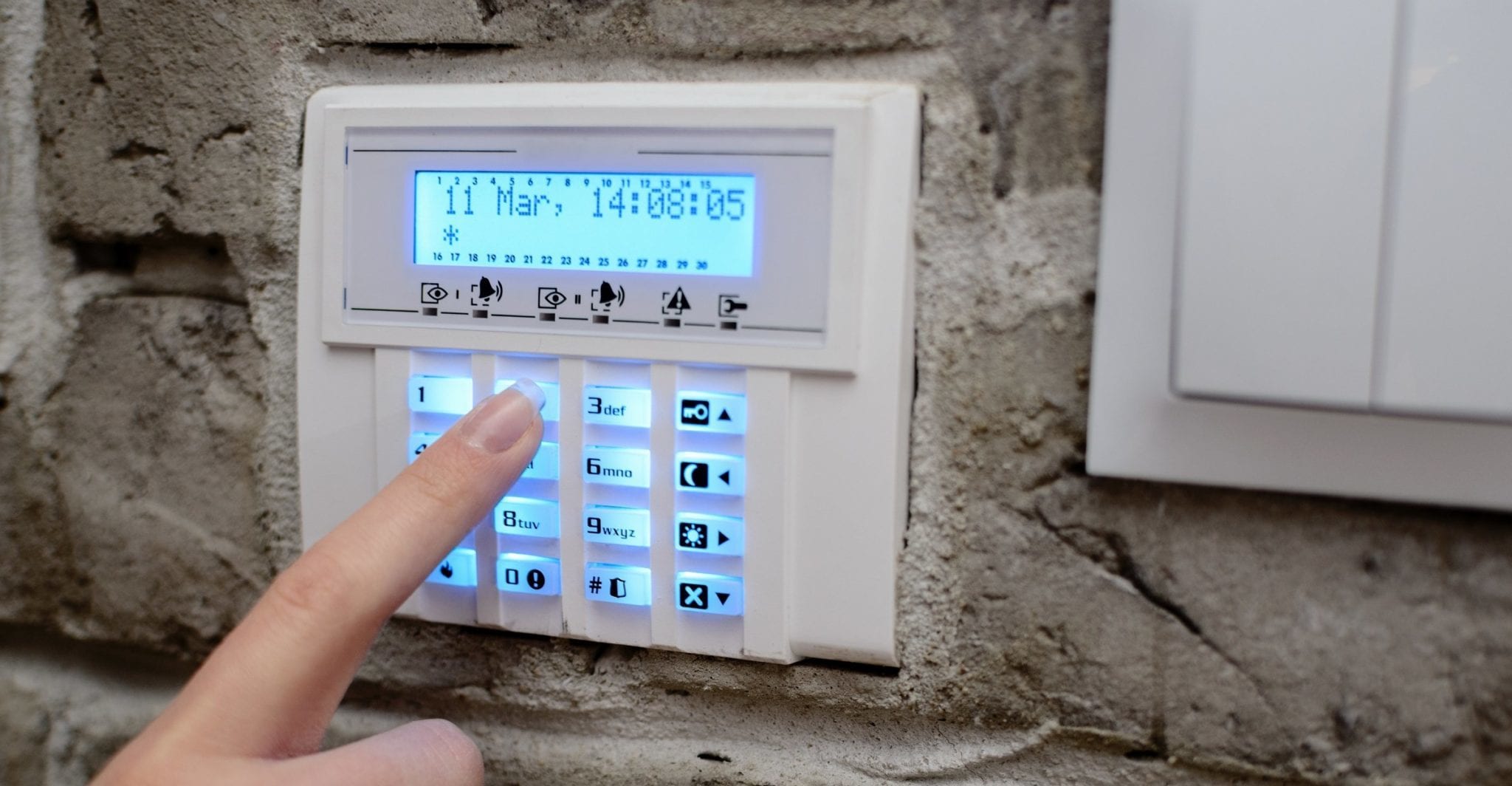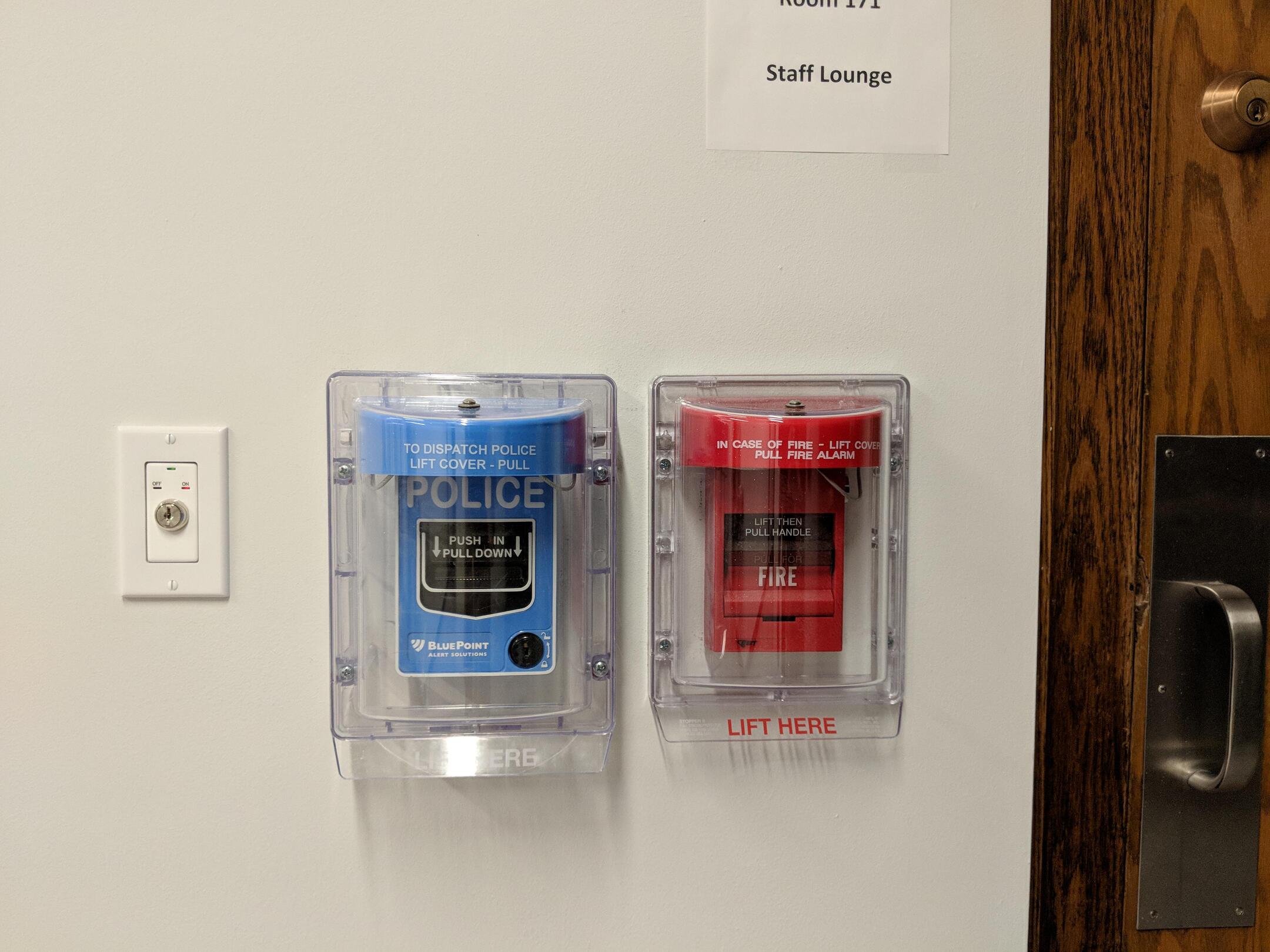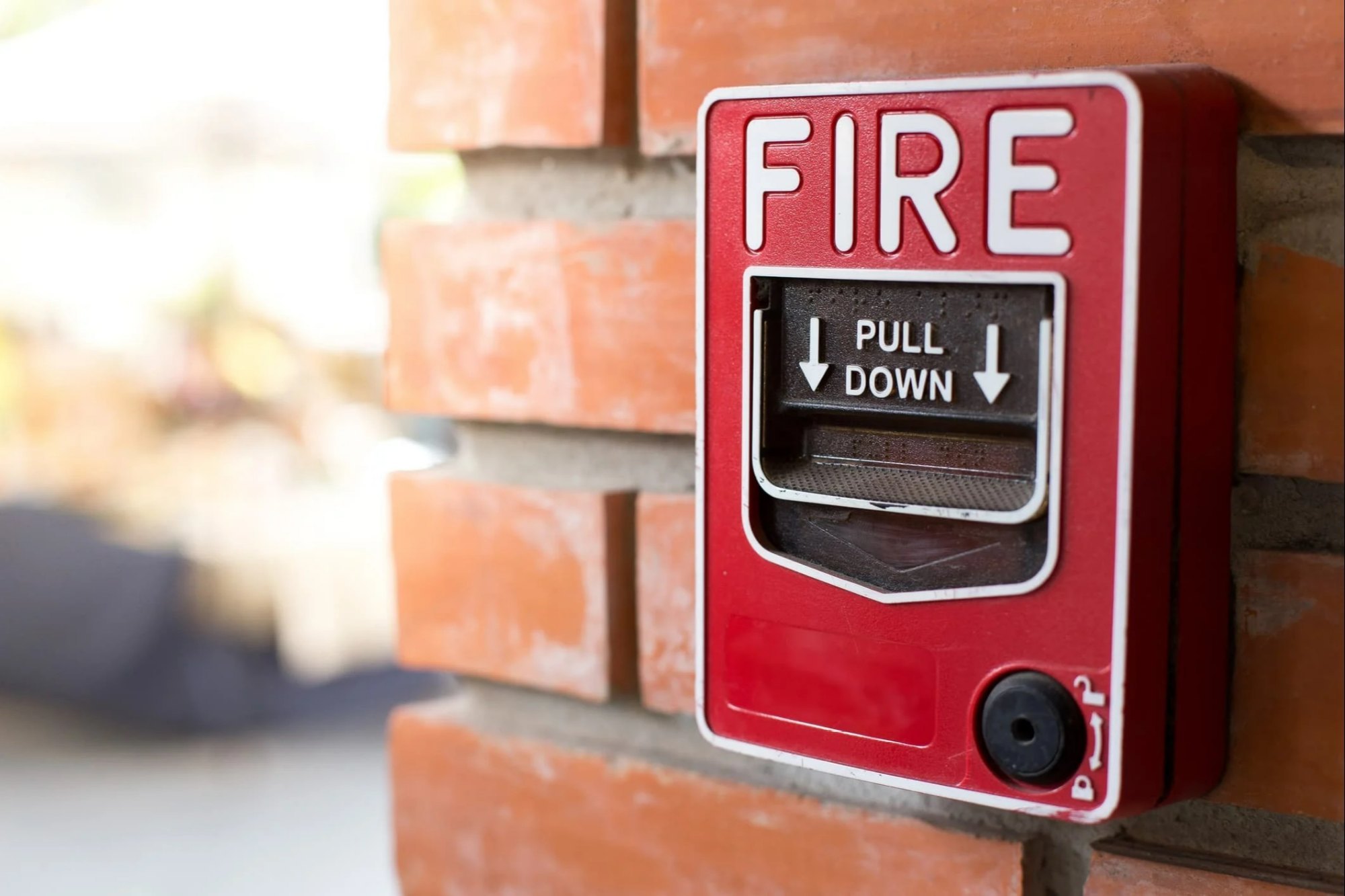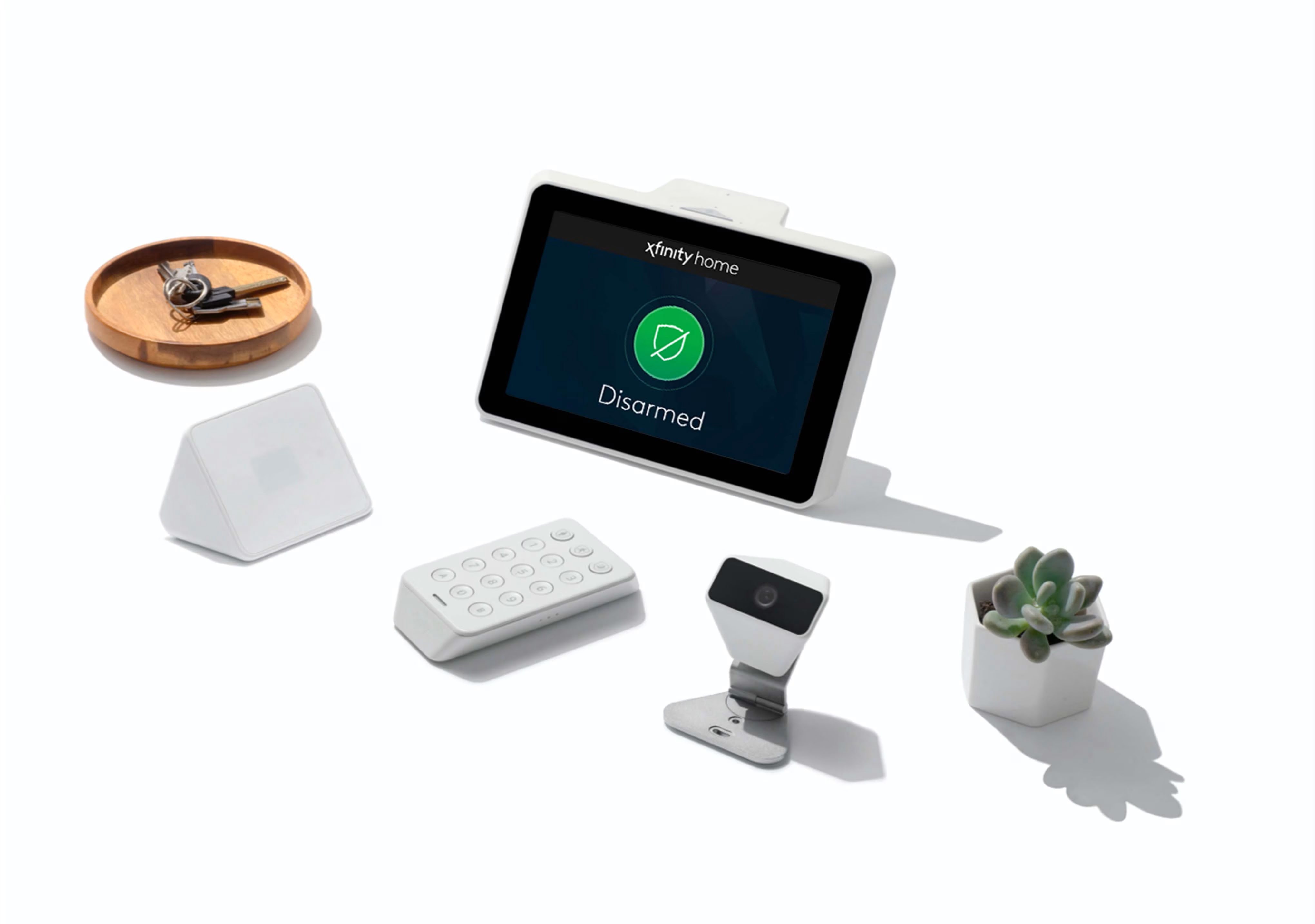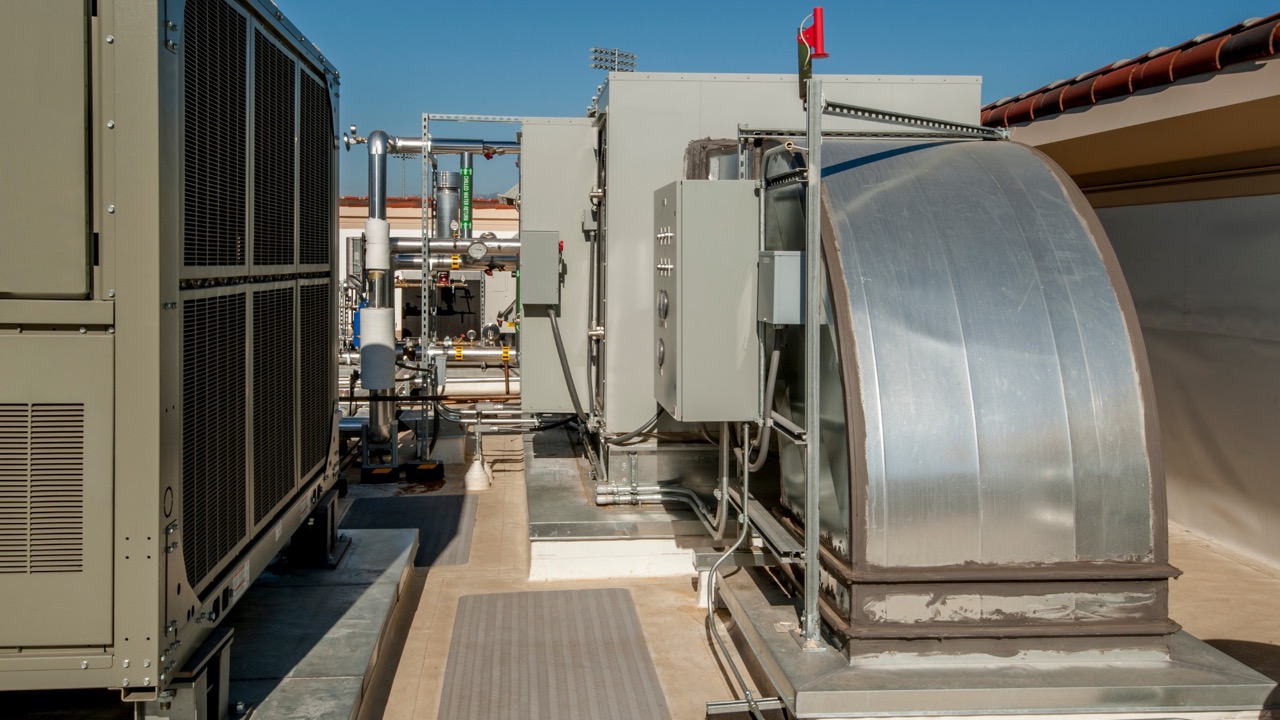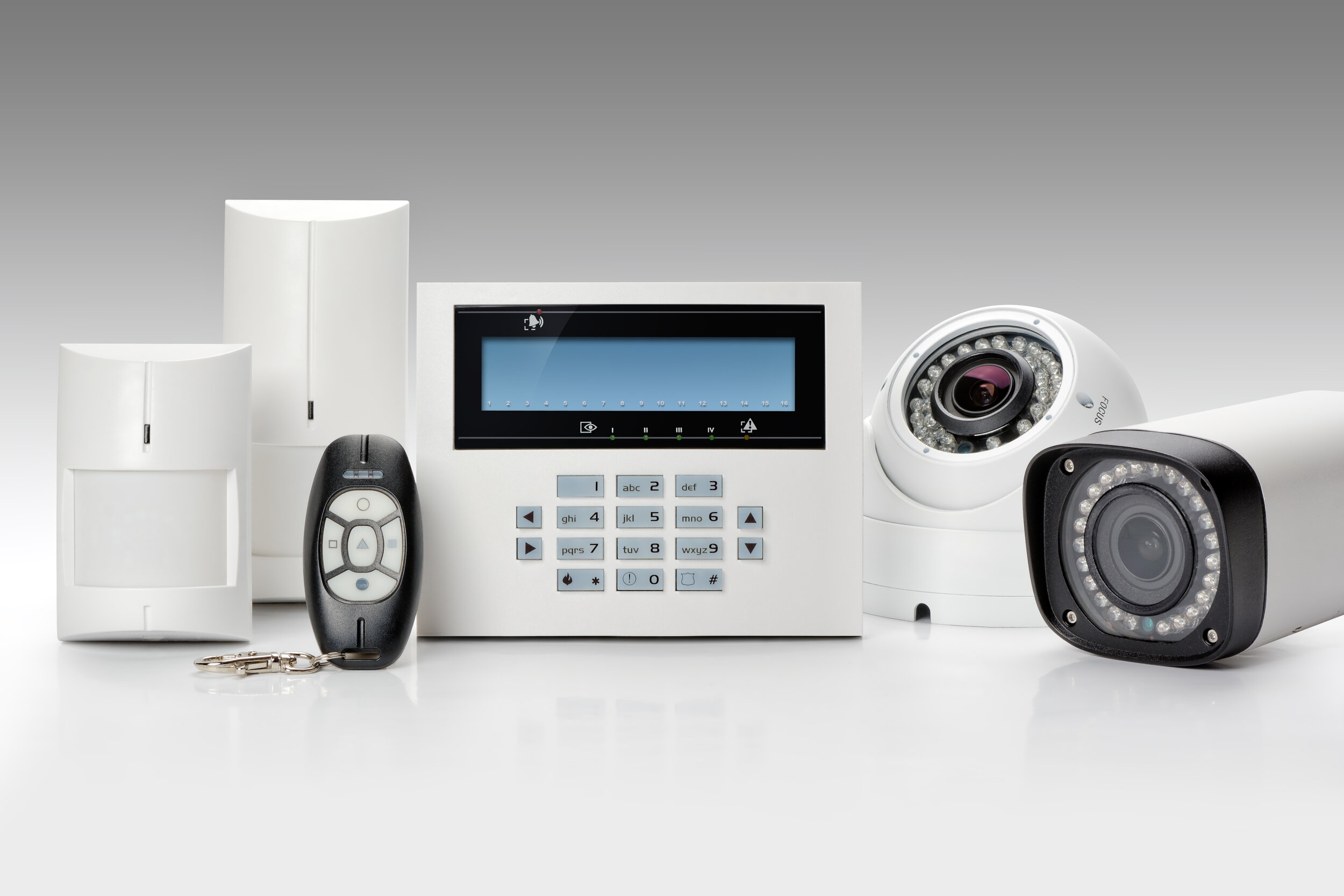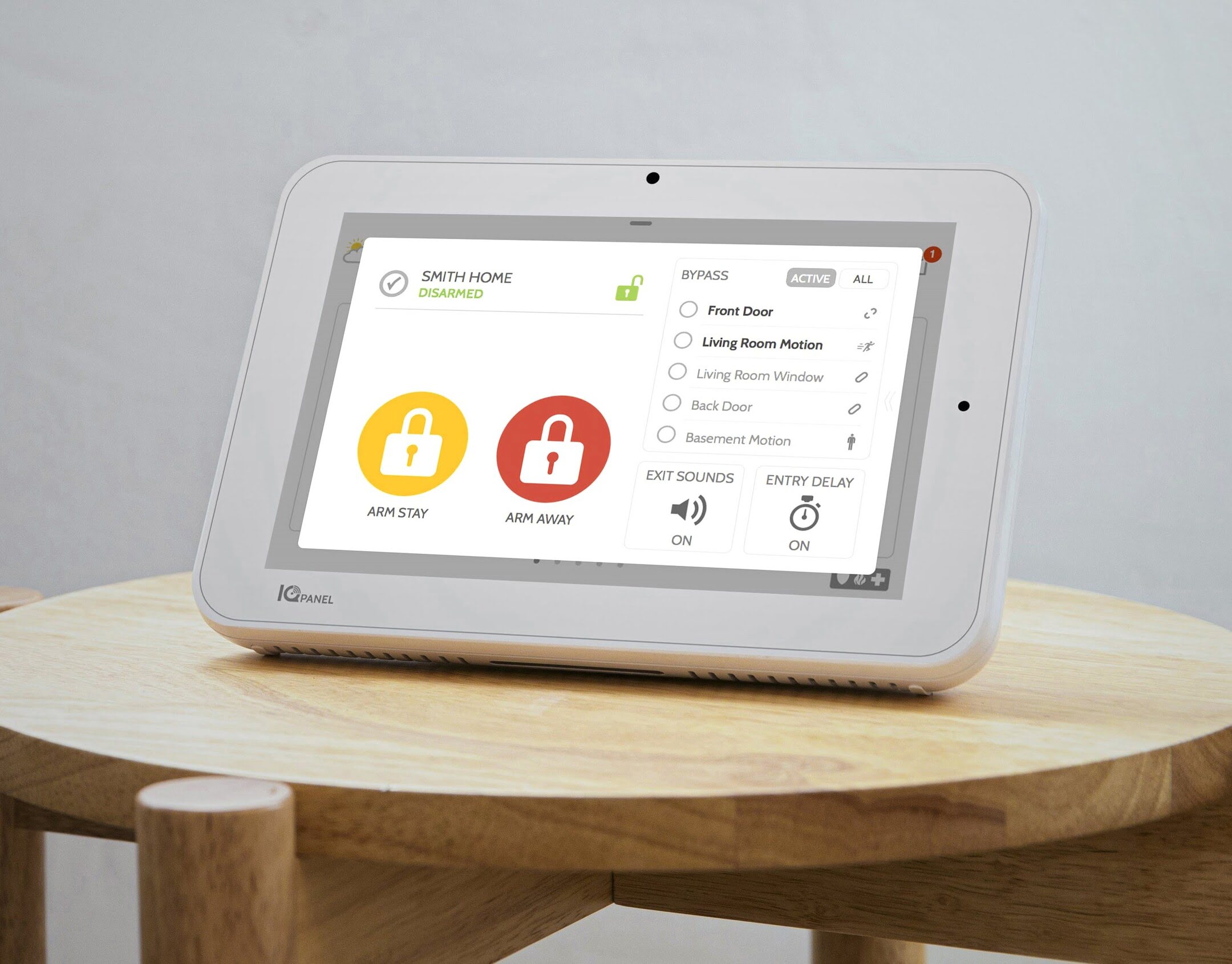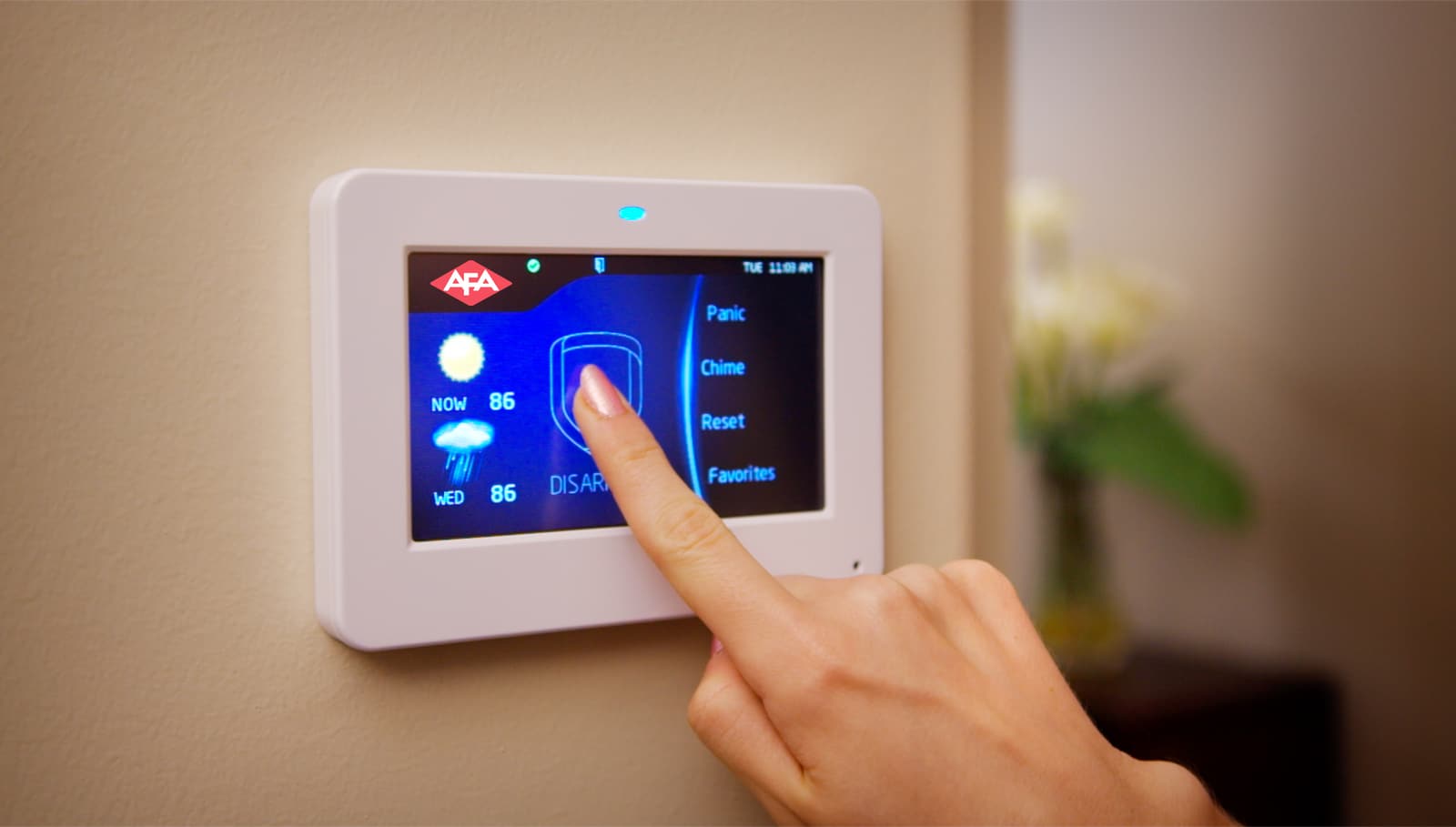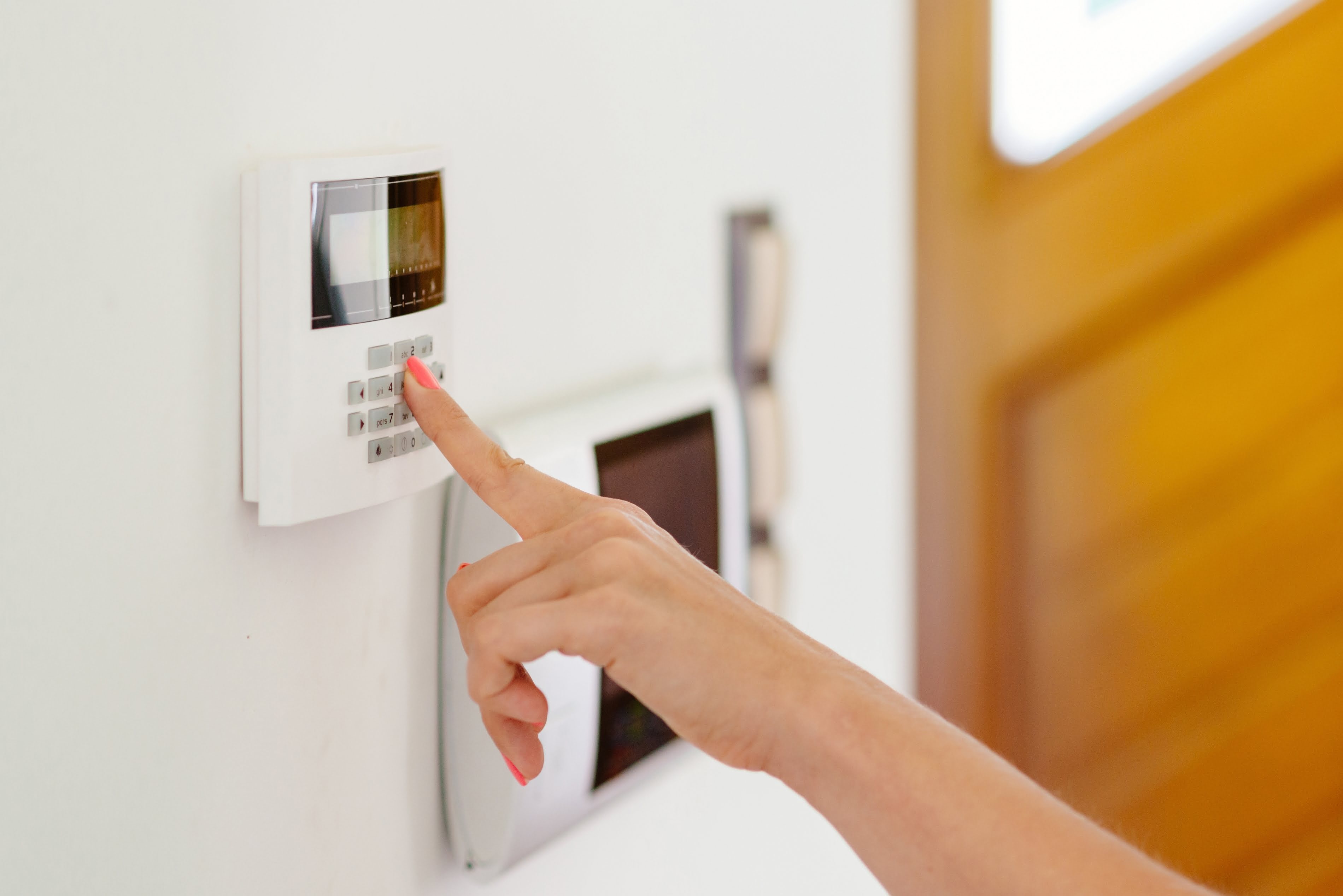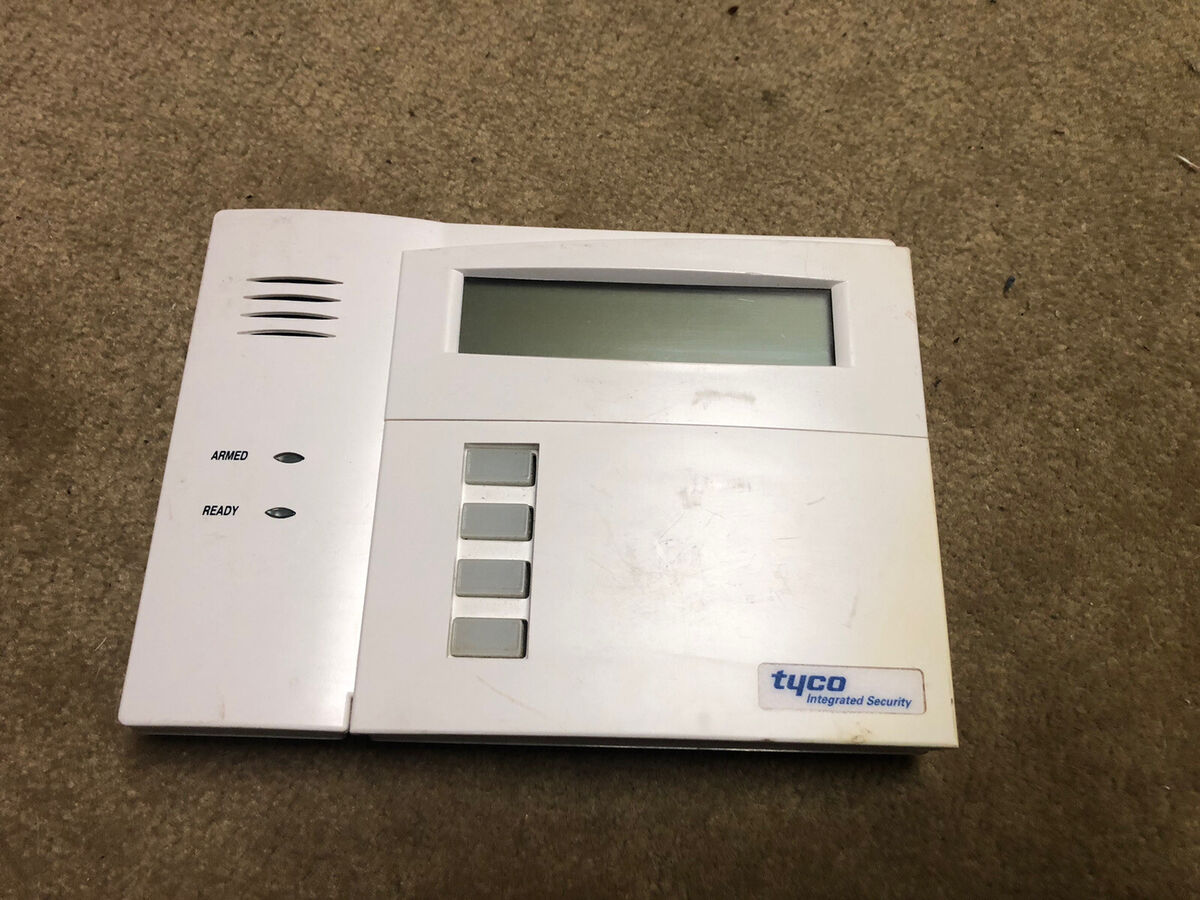Home>Home Security and Surveillance>How Do Cellular Alarm Systems Work


Home Security and Surveillance
How Do Cellular Alarm Systems Work
Modified: March 6, 2024
Discover how cellular alarm systems work to protect your home. Learn how home security and surveillance systems ensure your peace of mind.
(Many of the links in this article redirect to a specific reviewed product. Your purchase of these products through affiliate links helps to generate commission for Storables.com, at no extra cost. Learn more)
Introduction
Welcome to the world of home security and surveillance! In an era of increasing concerns about safety and the need for peace of mind, it’s important to have effective measures in place to protect your home and loved ones. One indispensable tool in this quest is a cellular alarm system. In this article, we will dive deep into the workings of these systems, exploring their components, communication methods, advantages, limitations, and how to choose the right one for your needs.
Cutting-edge technology has revolutionized the home security landscape, and cellular alarm systems have emerged as a reliable and efficient solution. These systems utilize cellular networks to transmit signals, ensuring constant connectivity and real-time communication.
Whether you’re a homeowner or renter, a cellular alarm system can provide an additional layer of security, granting you peace of mind and deterring potential burglars. By understanding the inner workings of these systems, you can make an informed decision about which one suits your needs best.
Over the next few sections, we will explore the different components of a cellular alarm system, how they communicate, and the advantages and limitations they bring. We will also provide helpful tips on choosing the right system for your home. Let’s dive in!
Key Takeaways:
- Cellular alarm systems use wireless technology to protect homes, providing reliable communication and real-time notifications. They offer peace of mind and enhanced security, making them a popular choice for homeowners.
- When choosing a cellular alarm system, consider factors like home size, customization options, monitoring services, and smart home integration. Understanding the system’s features and limitations is crucial for creating a safe and secure environment.
Read more: How Do CPI Wireless Alarm Systems Work
Cellular Alarm Systems: An Overview
Cellular alarm systems are cutting-edge security solutions that rely on cellular technology to protect your home. Unlike traditional landline-based systems, which are susceptible to tampering and require physical connections, cellular alarm systems offer a wireless and more secure alternative.
These systems consist of various components that work together to provide comprehensive home security. The main components include:
- Control Panel: The control panel serves as the brain of the system, allowing you to arm/disarm the system, customize settings, and receive real-time notifications.
- Door and Window Sensors: These sensors detect when doors or windows are opened or closed, triggering an alarm if an unauthorized entry is detected.
- Motion Sensors: Motion sensors are designed to detect movement within a specific range and alert the system if any unauthorized motion is detected.
- Security Cameras: Security cameras capture video footage of your property, providing you with visual evidence in case of a security breach.
- Key Fobs: Key fobs are portable devices that allow you to conveniently arm or disarm the system with a touch of a button.
- Monitoring Service: Many cellular alarm systems offer monitoring services, providing round-the-clock surveillance and immediate response in the event of an emergency.
Cellular alarm systems communicate using cellular networks, enabling constant connectivity and real-time notifications. This method ensures that even if your internet or landline connection is down, the system remains operational. The control panel and other components communicate using cellular signals, transmitting data to a central monitoring station or your smartphone.
One of the key advantages of cellular alarm systems is their reliability. Since they use dedicated cellular networks, the risk of signal interruption is greatly reduced. Even during power outages, these systems often include battery backups to maintain functionality and keep your home secure. Additionally, cellular systems are much more difficult for intruders to tamper with compared to traditional landline-based systems.
Now that we have a solid understanding of the basics of cellular alarm systems, let’s explore how these systems communicate and the advantages they offer in more detail.
Components of a Cellular Alarm System
A cellular alarm system consists of several key components that work in unison to provide comprehensive home security. Understanding these components will help you make an informed decision when choosing the right system for your needs. Let’s take a closer look at each component:
- Control Panel: The control panel serves as the command center for your cellular alarm system. It allows you to arm or disarm the system, customize settings, and receive alerts. It is typically equipped with a keypad or touchscreen interface for easy control.
- Door and Window Sensors: These sensors are placed on doors and windows to detect if they are opened or closed. They trigger an alarm if an unauthorized entry is detected. Door and window sensors are typically magnetic or contact-based, with one part placed on the door or window frame and the other on the door or window itself.
- Motion Sensors: Motion sensors detect movement within a designated area. They use infrared or microwave technology to sense changes in heat or movement. If unauthorized motion is detected, the sensor triggers an alarm. Motion sensors are often placed in hallways, large rooms, or other areas with high foot traffic.
- Security Cameras: Security cameras play a vital role in any cellular alarm system. They provide visual surveillance of your property and record video footage that can be reviewed in case of a security breach. Modern security cameras often come equipped with features like high-definition resolution, night vision, and remote viewing capabilities.
- Key Fobs: Key fobs are portable devices that allow you to control your cellular alarm system with ease. They typically have buttons for arming, disarming, and triggering a panic alarm. Key fobs are convenient for quick access and can be carried on a keychain or kept in your pocket.
- Monitoring Service: Many cellular alarm systems offer monitoring services as an additional layer of security. With a monitoring service, your system is connected to a central monitoring station that monitors your property 24/7. If an alarm is triggered, the monitoring station can dispatch authorities or notify you and designated contacts.
Each component of a cellular alarm system plays a crucial role in protecting your home and deterring potential intruders. By understanding these components and their functions, you can choose a system that meets your specific security needs.
How Cellular Alarm Systems Communicate
Cellular alarm systems rely on cellular networks for seamless and reliable communication. This wireless communication method ensures constant connectivity and real-time notifications, making cellular alarm systems more advanced and secure than traditional landline-based systems. Let’s explore how cellular alarm systems communicate:
Cellular Signals: Cellular alarm systems use cellular signals to transmit data and communicate between the various components of the system. These signals are sent over the same wireless networks used by mobile phones, ensuring a reliable and robust connection. By leveraging cellular signals, the alarm system remains operational even if your internet connection or landline is down.
Control Panel: The control panel acts as the central hub of the cellular alarm system. It communicates with the sensors, cameras, and other components to receive and relay information. The control panel uses cellular signals to send alerts, notifications, and commands to the monitoring station, your smartphone, or other connected devices.
Monitoring Station: When an alarm is triggered, the cellular alarm system can transmit signals to a monitoring station via cellular networks. The monitoring station receives the alarm signal and takes appropriate action, such as contacting you or dispatching authorities to your location. This real-time communication ensures a swift response in case of emergencies.
Smartphone Integration: Many cellular alarm systems offer smartphone integration, allowing you to monitor and control your system remotely. Through dedicated mobile applications, you can receive notifications, view live camera feeds, and remotely arm or disarm the system using your smartphone. This convenient feature keeps you connected to your home security no matter where you are.
Backup Systems: Cellular alarm systems often include backup systems to maintain communication during power outages. These backup systems typically involve battery backups, ensuring that your cellular alarm system remains operational even when the power is down. This feature provides peace of mind and ensures continuous protection for your home.
Encryption and Security: To safeguard your data and maintain the integrity of communication, cellular alarm systems use encryption protocols. These protocols ensure that transmitted data is encrypted, making it difficult for unauthorized individuals to intercept or tamper with the communication. This added layer of security enhances the overall reliability and privacy of your cellular alarm system.
Through the use of cellular signals, reliable communication channels, and secure encryption, cellular alarm systems provide constant connectivity and real-time notifications. This ensures that you are always connected to your home security, even when you are away.
Advantages of Cellular Alarm Systems
Cellular alarm systems offer numerous advantages over traditional landline-based systems, making them a popular choice for homeowners seeking reliable and advanced home security. Let’s explore the key advantages of cellular alarm systems:
- Reliable Connectivity: Cellular alarm systems use dedicated cellular networks to transmit signals, ensuring a reliable and constant connection. Unlike landline-based systems, which can be vulnerable to physical tampering and outages, cellular systems remain operational even if your internet or landline connection is down.
- Secure Communication: Cellular alarm systems use encryption protocols to secure the communication between components. This ensures that the transmitted data is encrypted, making it difficult for intruders or hackers to intercept or tamper with the system’s communication. This added layer of security enhances the privacy and integrity of your home security.
- Wireless Installation: Cellular alarm systems are wireless, eliminating the need for extensive wiring throughout your home. This makes installation quick and hassle-free, as there is no drilling or running wires required. Wireless installation also offers flexibility, allowing you to easily relocate or add components as needed.
- Remote Access and Control: Many cellular alarm systems offer smartphone integration, allowing you to monitor and control your system remotely. Through dedicated mobile applications, you can receive real-time notifications, view live camera feeds, and arm or disarm the system from anywhere. This convenience provides peace of mind and keeps you connected to your home security, even when you’re away.
- Battery Backups: Cellular alarm systems often include battery backups to maintain functionality during power outages. These backups ensure that even in the event of a power failure, your home security system remains operational, providing continuous protection for your property.
- No Phone Line Vulnerabilities: Traditional landline-based alarm systems can be vulnerable to tampering by cutting the phone line. Cellular alarm systems, on the other hand, are not reliant on a physical connection, making them less susceptible to intruder interference. This makes cellular systems more secure and reliable in preventing unauthorized access to your home.
- 24/7 Monitoring Services: Many cellular alarm systems offer monitoring services for an additional layer of security. With monitoring services, your system is connected to a central monitoring station that keeps a constant watch on your property. In case of an alarm trigger, the monitoring station can dispatch authorities or notify you and designated contacts, ensuring a swift response to emergencies.
With their reliable connectivity, secure communication, wireless installation, remote control capabilities, battery backups, and 24/7 monitoring services, cellular alarm systems provide advanced and comprehensive home security. These advantages make them an excellent choice for homeowners looking to protect their property and loved ones.
Cellular alarm systems work by using a cellular network to send signals to a monitoring center. This means they are not reliant on landlines or internet, making them more secure and reliable.
Read more: How Do Cellular Security Cameras Work
Limitations of Cellular Alarm Systems
While cellular alarm systems offer numerous advantages, it’s important to be aware of their limitations as well. Understanding these limitations will help in making an informed decision and ensuring that your home security needs are met. Let’s explore the key limitations of cellular alarm systems:
- Dependence on Cellular Coverage: Cellular alarm systems rely on strong cellular network coverage in your area. In remote or rural locations with limited cellular coverage, the performance of the system may be affected. Before opting for a cellular alarm system, it’s important to ensure that your area has adequate cellular network coverage.
- Cellular Network Congestion: During times of high network usage or emergency situations that lead to increased cellular activity, networks can become congested. This congestion may result in delays in receiving notifications or transmitting signals from your cellular alarm system. However, it’s worth noting that cellular networks are designed to prioritize emergency communications, reducing the impact of network congestion on alarm systems.
- Monthly Cellular Service Fee: To utilize cellular connectivity, cellular alarm systems require a monthly cellular service plan. This fee is in addition to the upfront cost of purchasing the alarm system itself. It’s important to consider this recurring cost when budgeting for a cellular alarm system.
- Potential Interference: Although cellular alarm systems are designed to be highly secure and resistant to interference, there is a possibility of signal interference in rare cases. Factors such as extreme weather conditions or nearby electromagnetic devices may cause temporary disruptions in communication. However, the robust encryption protocols and signal redundancy in cellular alarm systems minimize the risk of interference.
- Power Dependency: Cellular alarm systems require a power source to operate. While most systems include battery backups, prolonged power outages may drain the backup batteries, resulting in a loss of functionality. It’s crucial to regularly check and replace batteries as recommended to maintain the uninterrupted operation of your cellular alarm system.
- Limited Integration with Existing Systems: If you have an existing home automation or security system that relies on a different communication method, integrating it with a cellular alarm system may require additional equipment or technical expertise. It’s important to check compatibility and consult with professionals when considering integrating your existing systems with a cellular alarm system.
Despite these limitations, cellular alarm systems remain a popular and effective choice for home security. By understanding and addressing these limitations, homeowners can make the most of the benefits offered by cellular alarm systems while minimizing any potential drawbacks.
Choosing a Cellular Alarm System
When it comes to selecting a cellular alarm system for your home, it’s important to consider several factors to ensure you choose the right one that meets your specific security needs. Let’s explore some key considerations when choosing a cellular alarm system:
- Home Size and Layout: Consider the size and layout of your home when selecting a cellular alarm system. Larger homes may require more sensors and cameras to provide comprehensive coverage. Assess the number of entry points and areas that need monitoring to determine the appropriate system size.
- Customization and Expandability: Look for a cellular alarm system that offers customization and expandability options. This allows you to tailor the system to your specific needs and add components as your security requirements evolve. Consider systems that allow you to add extra sensors, cameras, or smart home integration if desired.
- Sensors and Detection Methods: Assess the types of sensors and detection methods offered by the alarm system. Look for systems that offer a variety of sensors, including door/window sensors, motion sensors, glass break sensors, and smoke detectors, to provide comprehensive protection for your home.
- Monitoring Services: Evaluate whether you want professional monitoring services for your cellular alarm system. This involves a monthly fee but ensures round-the-clock monitoring and a rapid response to any security breaches. If you opt for monitoring services, research different providers and choose one that has a good reputation and offers the level of service you require.
- Smarthome Integration: Consider whether you want to integrate your cellular alarm system with other smart home devices or platforms. Many cellular systems offer compatibility with popular smart home ecosystems, allowing you to control your alarm system through voice commands or automate actions based on other smart devices in your home.
- Mobile Access and Notifications: Look for a cellular alarm system that provides mobile access through dedicated applications. This allows you to remotely control and monitor your system, receive real-time notifications, and view live camera feeds from your smartphone or tablet. Check the features and user interface of the mobile app to ensure it meets your needs.
- Installation and Maintenance: Consider the installation process and ongoing maintenance requirements of the cellular alarm system. Choose a system that offers easy installation, whether it’s a DIY setup or professional installation. Additionally, review the maintenance recommendations and ensure that the system is user-friendly with intuitive controls and regular software updates.
- Reviews and Reputation: Before making a final decision, read customer reviews and assess the reputation of the cellular alarm system you are considering. Look for feedback on reliability, customer service, and ease of use. Pay attention to any recurring issues or concerns reported by users.
By considering these factors, you can find a cellular alarm system that aligns with your specific security needs and provides peace of mind for you and your family. Remember to compare features, costs, and available options from different providers to make an informed decision.
Common FAQs About Cellular Alarm Systems
Cellular alarm systems can be complex, and homeowners often have various questions about their functionality, installation, and effectiveness. Here are some frequently asked questions about cellular alarm systems:
- How do cellular alarm systems work?
Cellular alarm systems use cellular signals to communicate between the components of the system. They rely on cellular networks to transmit data and provide constant connectivity, ensuring real-time notifications and remote control capabilities. - Do cellular alarm systems require a phone line or internet connection?
No, cellular alarm systems do not require a phone line or internet connection. They use dedicated cellular networks for communication, making them more reliable and secure compared to landline-based systems. - Are cellular alarm systems susceptible to hacking or interference?
Cellular alarm systems utilize encryption protocols to secure communication, making it difficult for unauthorized individuals to intercept or tamper with the system. While no system is completely immune to hacking, cellular alarm systems are designed to be highly secure. - What happens if there is a power outage?
Cellular alarm systems often include battery backups to ensure operation during power outages. These backups allow the system to continue functioning and provide protection for your home until power is restored. - Can I monitor my cellular alarm system remotely?
Yes, many cellular alarm systems offer smartphone integration, allowing you to monitor and control your system remotely. Through dedicated mobile apps, you can receive real-time notifications, view live camera feeds, and arm or disarm the system from anywhere. - Can I add additional sensors or cameras to my cellular alarm system?
Yes, most cellular alarm systems offer customizable options and the ability to expand the system. You can add additional sensors, cameras, or other components to ensure comprehensive coverage for your home. - Do cellular alarm systems require professional installation?
It depends on the specific system. Some cellular alarm systems are designed for easy DIY installation, while others may require professional installation. Check the system’s specifications and your comfort level to determine which installation method is best for you. - Do cellular alarm systems come with monitoring services?
Not all cellular alarm systems include monitoring services, but many providers offer optional monitoring services for an additional fee. These services provide round-the-clock surveillance and can dispatch authorities or notify you in case of an emergency. - Can I integrate my cellular alarm system with other smart home devices?
Yes, many cellular alarm systems are compatible with popular smart home ecosystems, allowing you to integrate them with other smart devices in your home. This provides enhanced automation and control options for your home security. - Are cellular alarm systems pet-friendly?
Yes, there are sensors and motion detectors specifically designed to be pet-friendly. These sensors can differentiate between the movement of pets and potential intruders, reducing false alarms while still providing reliable security.
These are just a few of the common questions that arise when considering a cellular alarm system. If you have specific concerns or need more information, it’s advisable to consult with a professional security provider who can address your individual needs and provide expert guidance.
Conclusion
Cellular alarm systems have revolutionized the way we protect our homes and loved ones. These advanced security systems utilize cellular technology to ensure reliable communication, constant connectivity, and real-time notifications. By understanding the components, advantages, limitations, and considerations when choosing a cellular alarm system, you can make an informed decision to meet your specific security needs.
With their reliable connectivity, secure communication, wireless installation, and remote control capabilities, cellular alarm systems offer numerous advantages over traditional landline-based systems. They provide peace of mind, enhanced protection from potential threats, and seamless integration with other smart home devices for a holistic security solution.
However, it’s important to consider the limitations of cellular alarm systems, such as dependence on cellular coverage, potential network congestion, and the need for a monthly cellular service fee. Understanding these limitations will help manage expectations and ensure the system is suitable for your specific circumstances.
When choosing a cellular alarm system, factors such as home size and layout, customization options, sensors and detection methods, monitoring services, smart home integration, mobile access, installation process, and customer reviews are all important considerations. By carefully evaluating these factors, you can find a system that aligns with your needs and offers the desired level of protection.
In conclusion, cellular alarm systems provide a reliable, secure, and convenient solution to safeguard your home. They offer advanced features, constant connectivity, and remote control capabilities to give you peace of mind and protect your property and loved ones. By selecting the right system and understanding its features and limitations, you can create a safe and secure environment for your home.
Frequently Asked Questions about How Do Cellular Alarm Systems Work
Was this page helpful?
At Storables.com, we guarantee accurate and reliable information. Our content, validated by Expert Board Contributors, is crafted following stringent Editorial Policies. We're committed to providing you with well-researched, expert-backed insights for all your informational needs.
